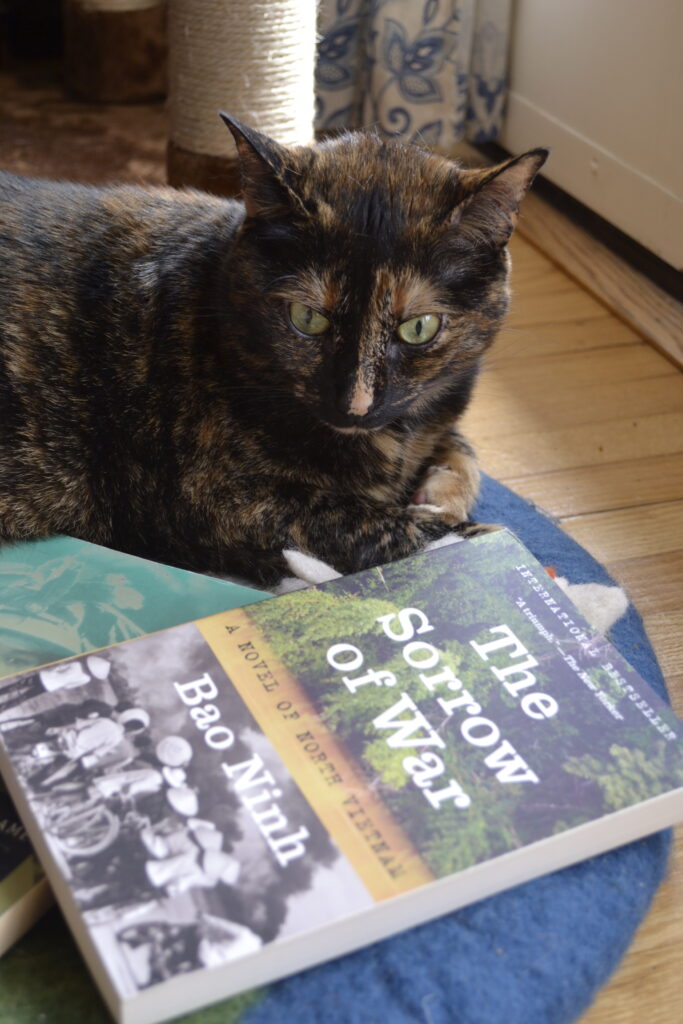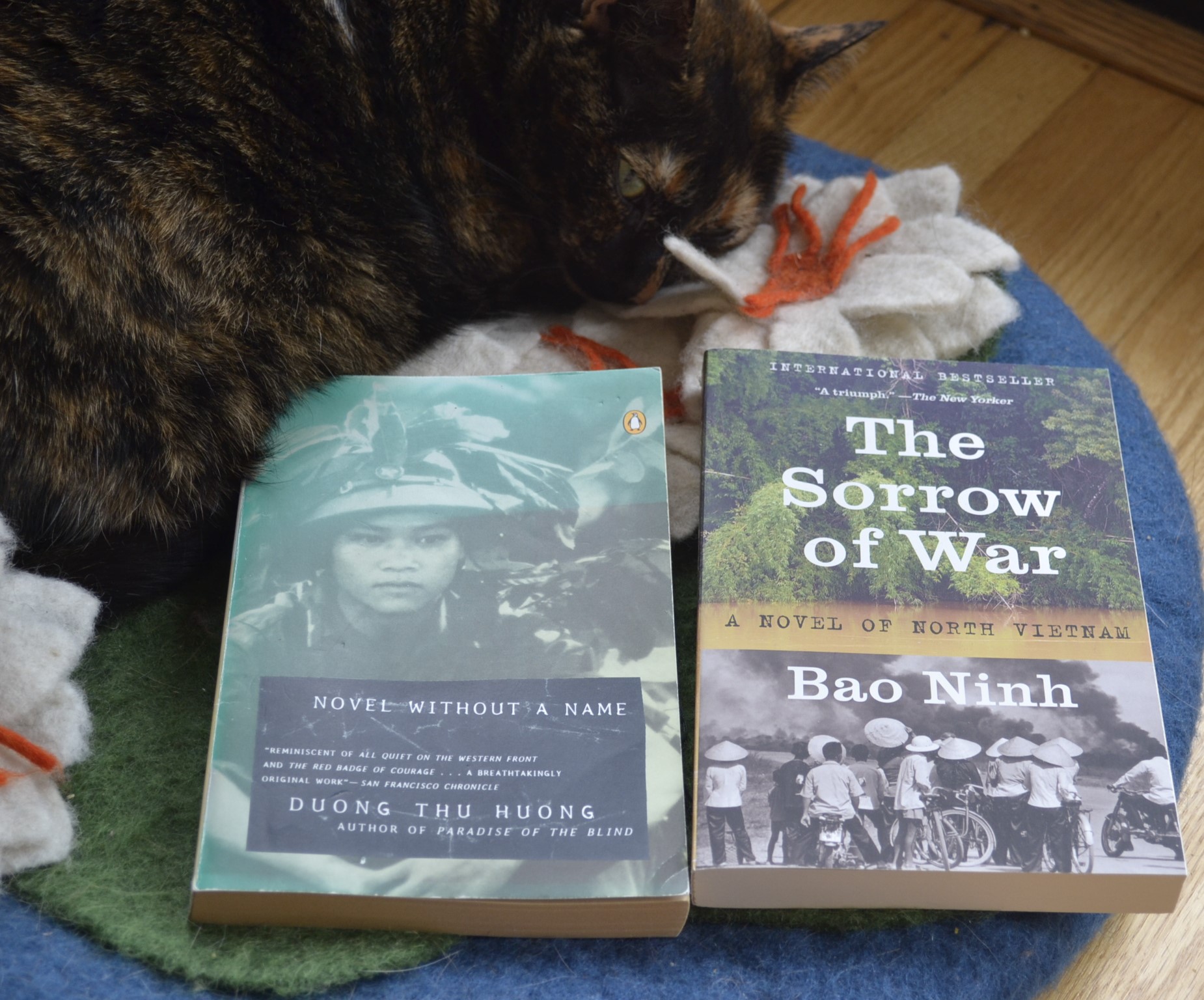The First Mow
Everyone who is lucky enough to have a bit of outdoor space has experienced the pressure of the neighbourhood deciding that it is time to mow. No, I have never happened to be ready when that time comes, but I have come to accept that I probably never will be. I am far too fond of seeing the magic of the tips of long, wild bunny ears that just crest the top of the long grass or the birds twittering and combing the soil between the wildflowers. And, oh, the blooms that can surface when you just let nature happen.
I want to be a good neighbour and that means being considerate of others’ space and, so, we mow. But it’s not the most enjoyable of yard work and I do hope that someday we manage to do what we’ve always been talking about and plant that creeping thyme or some other similar ground cover that will make mowing unnecessary. Until then, we mow, and we fend off the sun as best we can.
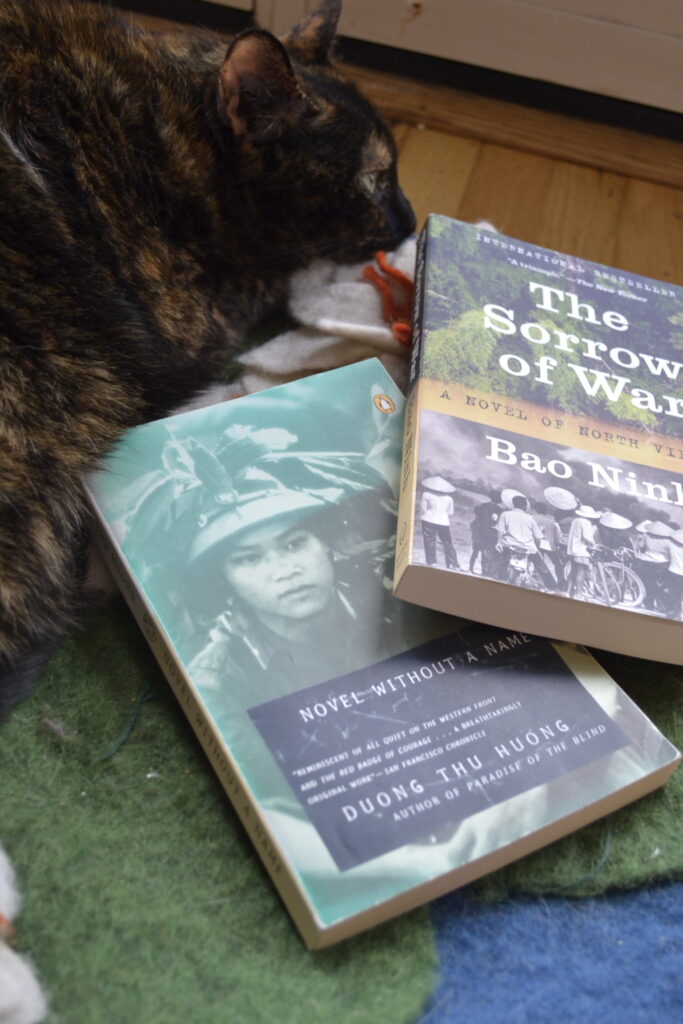
A Double Feature
I decided to do a double feature this week, since both books are very complementary and are each relatively fast reads. I also read about both novels in the same book — Viet Thanh Nguyen’s A Man of Two Faces. If you haven’t read it, it is very much worth a trip to your local independent bookstore. Nguyen writes powerfully and eloquently about the experience of trying to belong to a culture that constantly paints you as an ‘other’, while at the same time feeling completely alien to the country your parents fled. Nguyen is American, but somehow he is rarely treated like one. Yet he is also rejected by his Vietnamese relatives. Stuck between two worlds, Nguyen struggles with what it means to belong and who he is in the landscape of an America that is increasingly rejecting anyone that is not white.
I added a lot to my want-to-read list right after I finished that book, almost as much as I did when I finished Claire-Louise Bennett’s Checkout 19. It’s always amazing when one good work recommends so many others.
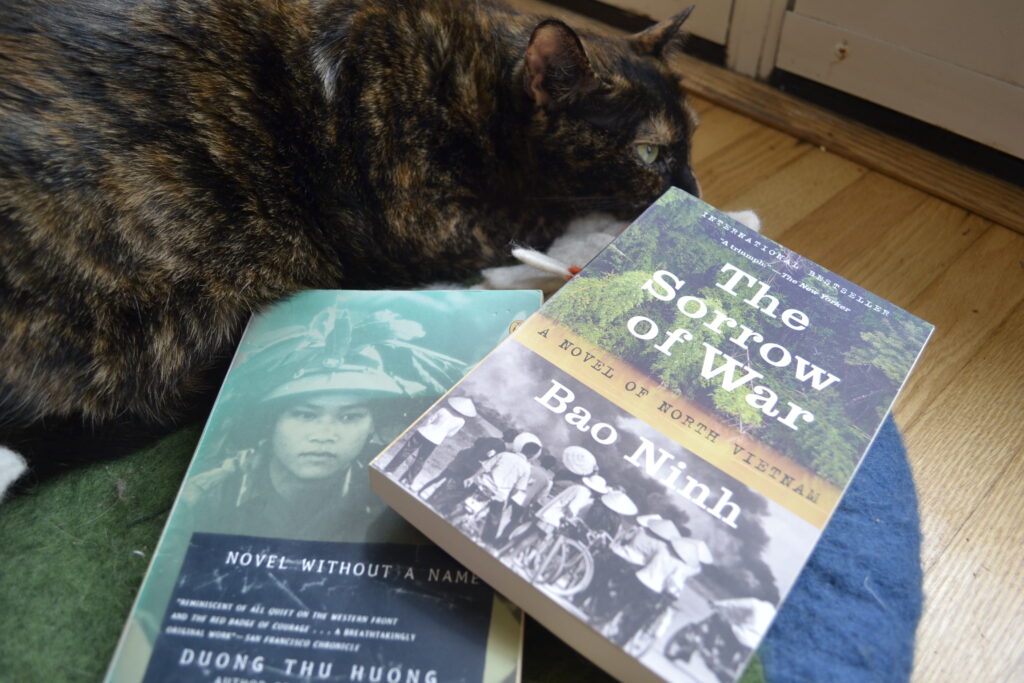
Bao Ninh’s The Sorrow of War and Duong Thu Huong’s Novel Without a Name are both novels about the Vietnam War from the perspective of young men who served in the North Vietnamese Army. They are powerful testaments from a viewpoint that we do no often get in the west — that being the Americans as the invading, colonialist army in Vietnam. The presence of American troops is felt, but they are not the dominant part of the story, and these books are not about them. They are books written by Vietnamese writers about Vietnam and North Vietnamese soldiers. Each book focusses on the disillusionment of the protagonist as they question what they fought for and the broken promises they are confronted with when they return home.
As a warning both books feature graphic descriptions of violence, and sexual violence.
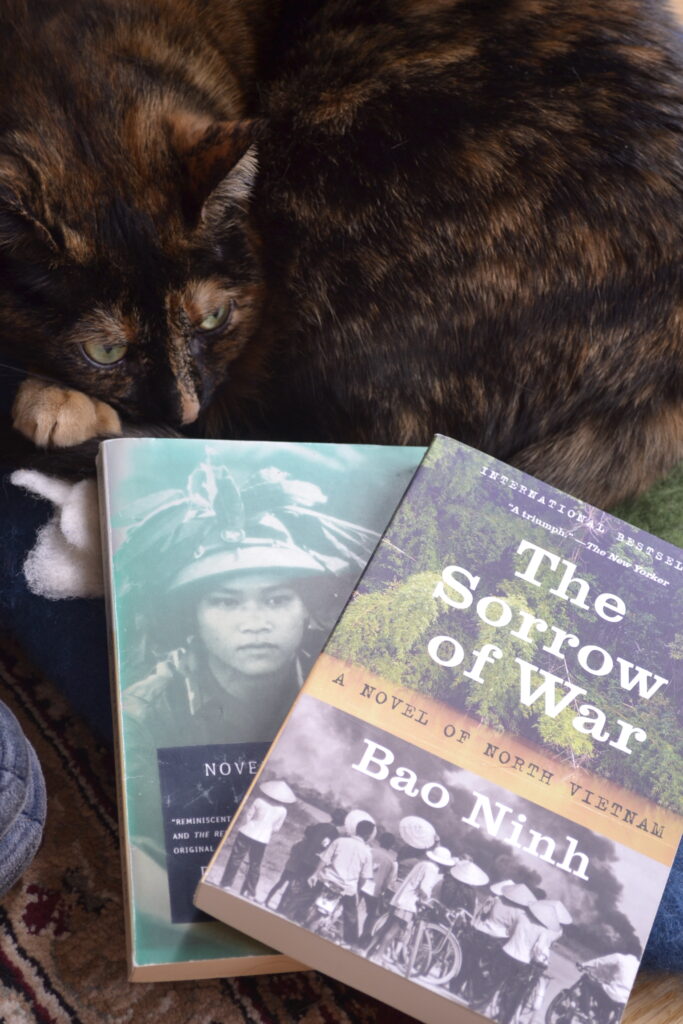
The Sorrow of War
The Sorrow of War is a masterpiece of war literature. Kien is the only survivor of his brigade, and is an alcoholic in the closing months of his twenties. Wandering between memories of old battles and memories of who he was before the war began, Kien realizes that writing could be his salvations and the only way to exorcize the past. But, first, he has to come to grips with the youth that was taken from him in service to dreams ultimately unrealized and a patriotism that led so many astray.
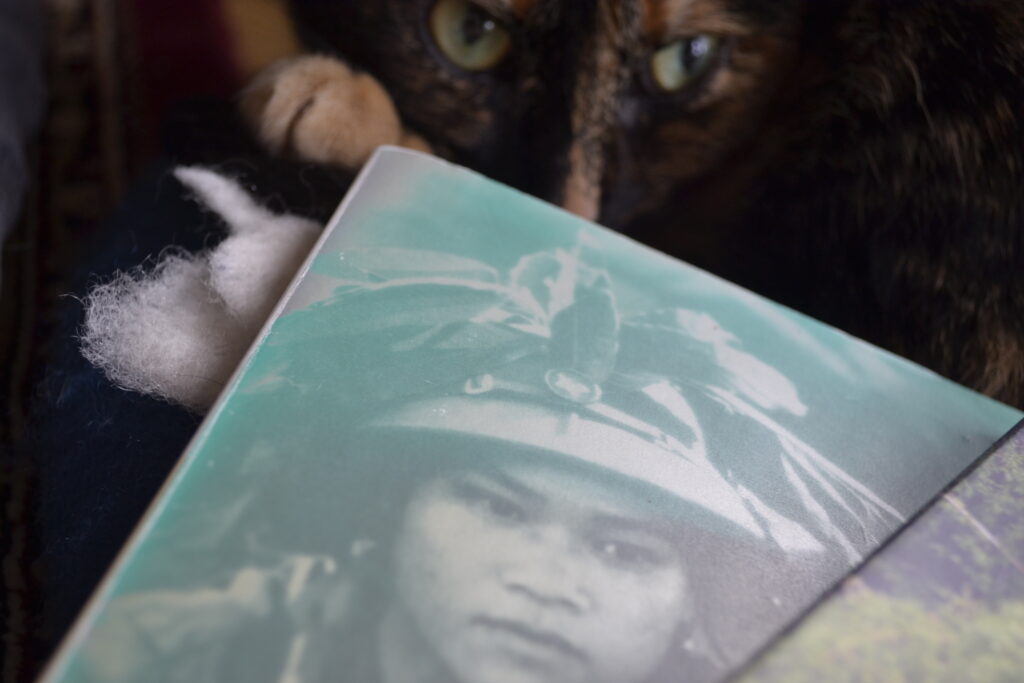
Ninh’s narrative structure is a very complex one, progressing in circles as Kien navigates his extensive and traumatic memories. More than just a statement about innocence lost, it is a treatise of the costs of blind idealism and the horrific nature of war as well as its far-reaching consequences. Kien can see where his own ignorance lies, but he also can see how he was lied to and ultimately how the government he was fighting for did not fulfill its promise.
This is a powerfully, starkly honest look at how the Vietnam War changed life in Vietnam and those that fought in it with an emphasis on what came after the war ended and the soldiers that were expected to move on with their very shattered lives.
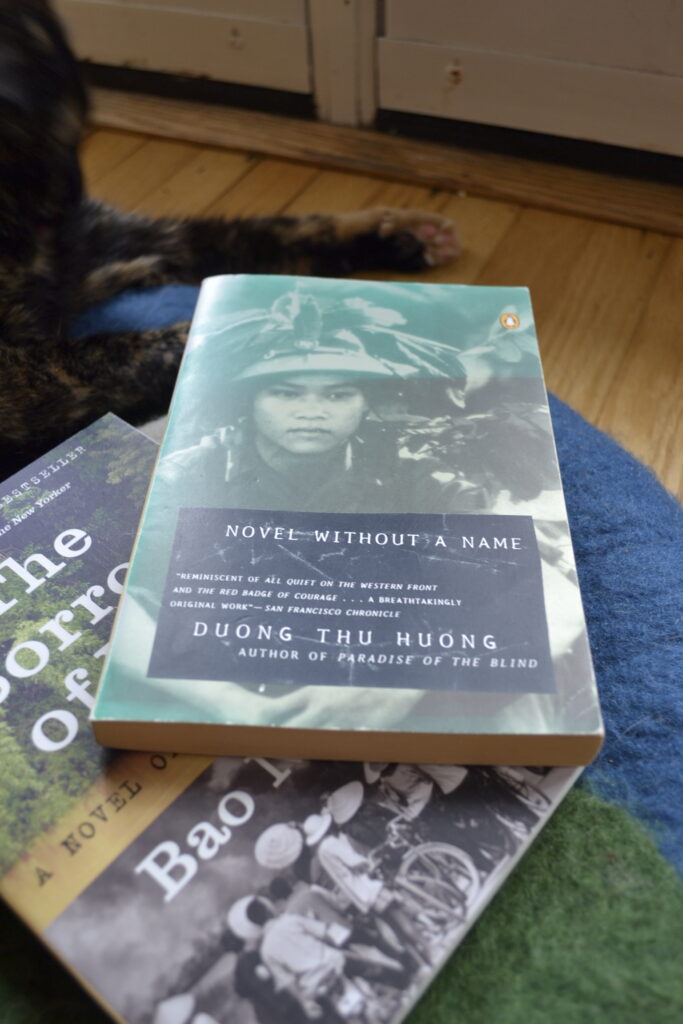
Novel Without a Name
Duong Thu Huong’s Novel Without a Name features a protagonist that’s also in his late twenties, however his war is not over. Quan is still part of the conflict, but he is given a unique chance to make his way home for a time. As he does so, he confronts both the horrors he has witnessed and the contrast between who he is now and who he was when he left home. He has to confront the loss of friends, the loss of family, and the loss of the life he could have had if the war had not intervened.
Huong’s prose masterfully paints a portrait of the division of the disillusioned and those that still believe in a false dream of progress. Quan deals with the realities of armed conflict versus what those who haven’t experienced it think they know. In a stark economy of words, Huong conveys complex and grating sorrows like the dawning knowledge that some things cannot be undone and there are roads that cannot be travelled back to their source.
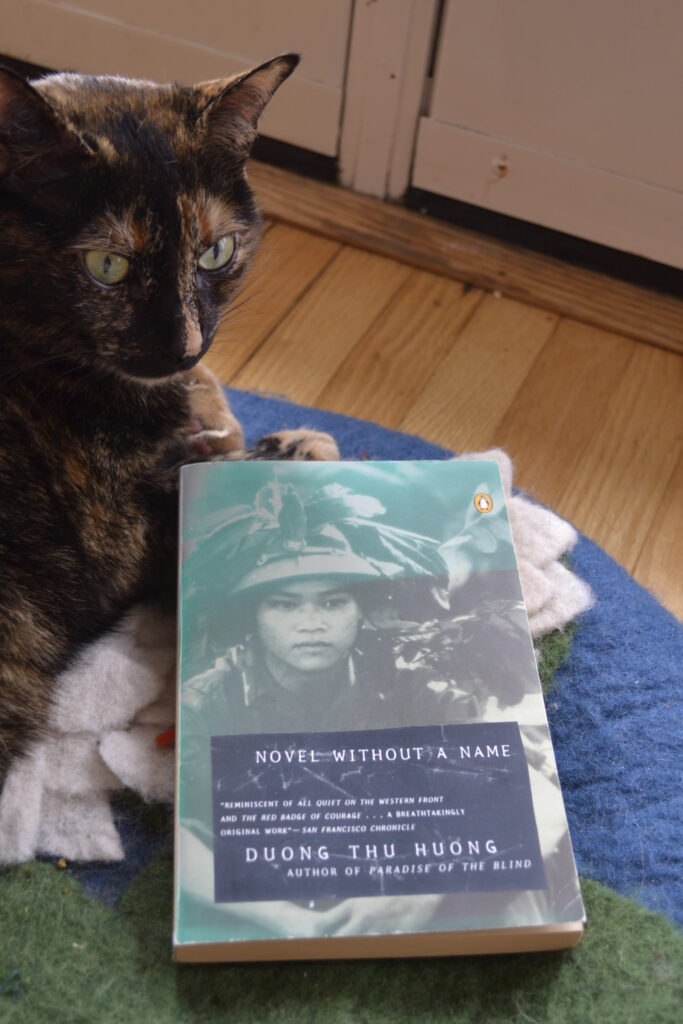
The Second Mow
My lovely spouse tackled the front yard earlier in the week, and it’s so lush that it’s all she could do to finish that. Which means that the backyard beckons. Usually I can take the backyard for her, but I’m in the process of getting a tattoo sleeve done, which means any kind of sweat is a no-no, and I am stuck inside. Later in the summer, both yards will be an hour-long job but, right now, it is a struggle for our little push mower to battle all of that lush grass.
And of course, the pressure always mounts when you can hear the chorus of lawnmowers at least twice a week until August.
